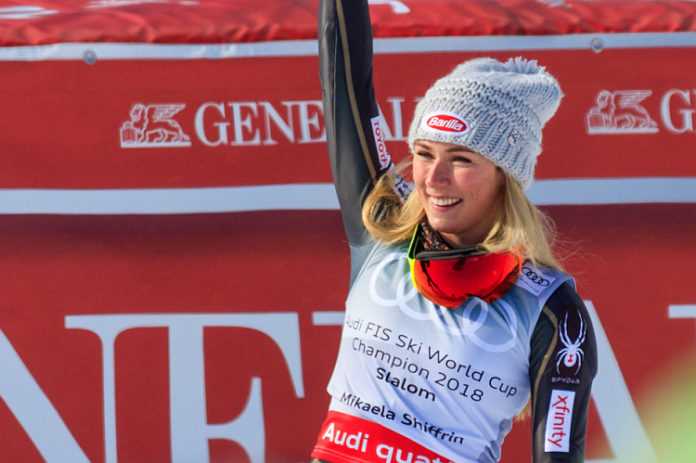 The dramatic climax to the 1990 thriller “The Hunt for Red October” saw the ultra-aggressive Captain Tupolev trying to torpedo the runaway Soviet submarine Red October, but instead – as First Mate Andrei Bonovia famously said – he ended up destroying his own boat, the Konovalov.
The dramatic climax to the 1990 thriller “The Hunt for Red October” saw the ultra-aggressive Captain Tupolev trying to torpedo the runaway Soviet submarine Red October, but instead – as First Mate Andrei Bonovia famously said – he ended up destroying his own boat, the Konovalov.
That fictional finish has turned into real life over the past year in Russia, as the World Anti-Doping Agency staff determined that the long-desired Moscow Laboratory database provided by the Russians in January 2019 was “neither complete nor fully authentic” and that severe sanctions are in order.
So, just a week after the suggested sanctions were made public, let’s get this straight:
(1) Elements of the Russian Sports Ministry hatched a plan for national-scale doping in 2011 to improve its medal performance. This was uncovered by whistleblowers in 2014 and 2015, leading to varying sanctions against Russian teams at the 2016 Olympic and 2018 Winter Games.
(2) After lengthy negotiations with WADA and a 31 December 2018 deadline to turn over the database in order to maintain its reinstated status, Russian authorities made massive changes to the Moscow database to try and cover up many positive tests.
The cover-up was, apparently, massive. The Associated Press added crucial details in a story which reported on the 89-page staff review document. The report indicated that there were “thousands of manipulations that were concocted long after Russia had agreed to hand over the data in its original form. In fact, Russia was doctoring files as late as Jan. 16, 2019, while WADA’s team was already in the building, one day away from leaving Moscow with the now-sullied data in tow.”
The WADA report stated that “Such bad faith is indeed stunning, and … it provides a lens through which the explanations offered by the Russian authorities for the following subsequent events should be observed.”
So the WADA Compliance Review Committee, an independent arm of the agency, reviewed the staff work and just a week ago, sent a 26-page recommendation to the WADA Executive Committee that included a series of what were characterized as “severe” sanctions:
● Russian government officials are to barred from attending or participating in any Olympic events or World Championships for four years;
● Russia is not allowed to host any Olympic events or World Championships for four years, although it may continue to host already-allocated events if a replacement cannot be found;
● The Russian flag may not be flown at any Olympic event or World Championships during the period;
● Russian athletes may only participate in Olympic events or World Championships “where they are able to demonstrate that they are not implicated in any way by the non-compliance (i.e., they are not mentioned in incriminating circumstances in the McLaren reports, there are no positive findings reported for them in the database, and no data relating to their samples has been manipulated), in accordance with strict conditions to be defined by WADA (or the Court of Arbitration for Sport (CAS), if it sees fit), pursuant to the mechanism foreseen in ISCCS Article 11.2.6. In this circumstance, they may not represent the Russian Federation.”
● A fine of $100,000.
These recommendations will be reviewed by the WADA Executive Committee on Monday, December 9.
There’s no doubt that the proposed sanctions are substantial. But are they enough?
Travis Tygart, the always-quotable head of the U.S. Anti-Doping Agency, thinks not. He released a statement that noted “The response proposed by the CRC is inadequate especially given the deceit perpetuated by the Russian sport system which is controlled by the government.
“History has taught us the response to Russian doping used in Rio 2016 and PyeongChang 2018 – in which a secretly-managed process permitting Russians to compete – did not work. The world’s athletes saw through this charade and it apparently only emboldened Russia to simply destroy evidence and to tamper with more samples to make it impossible to confirm whether any clean Russian athletes actually exist.”
Tygart has a point. The recommended sanctions, including allowing athletes “untouched” by doping to compete leaves us in a situation parallel to the 2018 PyeongChang Games, where 168 “Olympic Athletes from Russia” were allowed to compete after an application procedure operated by the International Olympic Committee.
Tygart has called that “a farce” and demands harsher penalties.
The issue for the WADA Executive Committee will be section 11.2.6 of the International Standard for Code Compliance by Signatories (ISCCS), which says in part:
“The consequences should not go further than is necessary to achieve the objectives underlying the Code. … if it is clear that allowing [athletes] to compete in the Event(s) in a neutral capacity (i.e., not as representatives of any country) [1] will not make the Signatory Consequences that have been imposed less effective, or [2] be unfair to their competitors or [3] undermine public confidence in the integrity of the Event(s) … then such a mechanism may be permitted.”
So the question is fairly put: what punishment will encourage Russia not to cheat in the future?
This isn’t simple; it’s incredibly complex.
The Compliance Review Committee noted explicitly that “RUSADA’s work is effective in contributing to the fight against doping in Russian sport,” so the “new” anti-doping effort there seems to be working. But in recent months, Russian Athletics Federation officials were engaged in obstructing the investigation of a whereabouts violation case concerning high jump star Danil Lysenko, and World Athletics announced that it has suspended its efforts to re-admit the Russian Federation … and could vote to expel Russia altogether.
What about the International Olympic Committee? The IOC issued a strongly-worded statement that said “This flagrant manipulation is an attack on the credibility of sport itself and is an insult to the sporting movement worldwide. The IOC will support the toughest sanctions against all those responsible for this manipulation.” That’s about the Russian government again; not a word about suspending Russia or any athletes.
So it’s a mixed bag.
The comments from within Russia are mixed as well. WADA’s decision on December 9 can be appealed to the Court of Arbitration for Sport, so the ultimate penalties may not be known for a couple of months.
That ensures that this issue will remain a hot topic right up to Tokyo, but focused this time on WADA and it’s new chief, Polish minister (and former 400 m runner) Witold Banka. Watch for a lot of references to “athlete rights” as at least some Russians are allowed to compete in Tokyo.
But those who are not allowed to compete – it’s possible that all of Russia’s track & field athletes could be excluded – they will remember the last words spoken aboard the fictional submarine Konovalov: “You’ve killed US!”
Rich Perelman
Editor
You can receive our exclusive TSX Report by e-mail by clicking here. You can also refer a friend by clicking here.


























